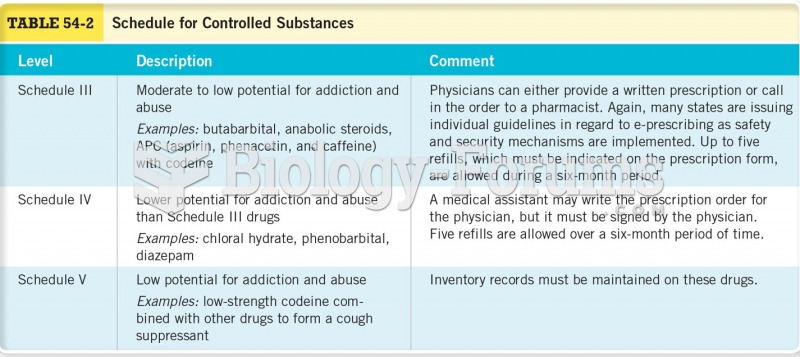This topic contains a solution. Click here to go to the answer
|
|
|
Did you know?
Aspirin is the most widely used drug in the world. It has even been recognized as such by the Guinness Book of World Records.
Did you know?
Children of people with alcoholism are more inclined to drink alcohol or use hard drugs. In fact, they are 400 times more likely to use hard drugs than those who do not have a family history of alcohol addiction.
Did you know?
There are more nerve cells in one human brain than there are stars in the Milky Way.
Did you know?
For pediatric patients, intravenous fluids are the most commonly cited products involved in medication errors that are reported to the USP.
Did you know?
The training of an anesthesiologist typically requires four years of college, 4 years of medical school, 1 year of internship, and 3 years of residency.
 Glioma. (a) Illustration of a large glioma (colored area) within the left cerebral hemisphere in a s
Glioma. (a) Illustration of a large glioma (colored area) within the left cerebral hemisphere in a s
 Single-dose drug administration: pharmacokinetic values for this drug are as follows: onset of actio
Single-dose drug administration: pharmacokinetic values for this drug are as follows: onset of actio





